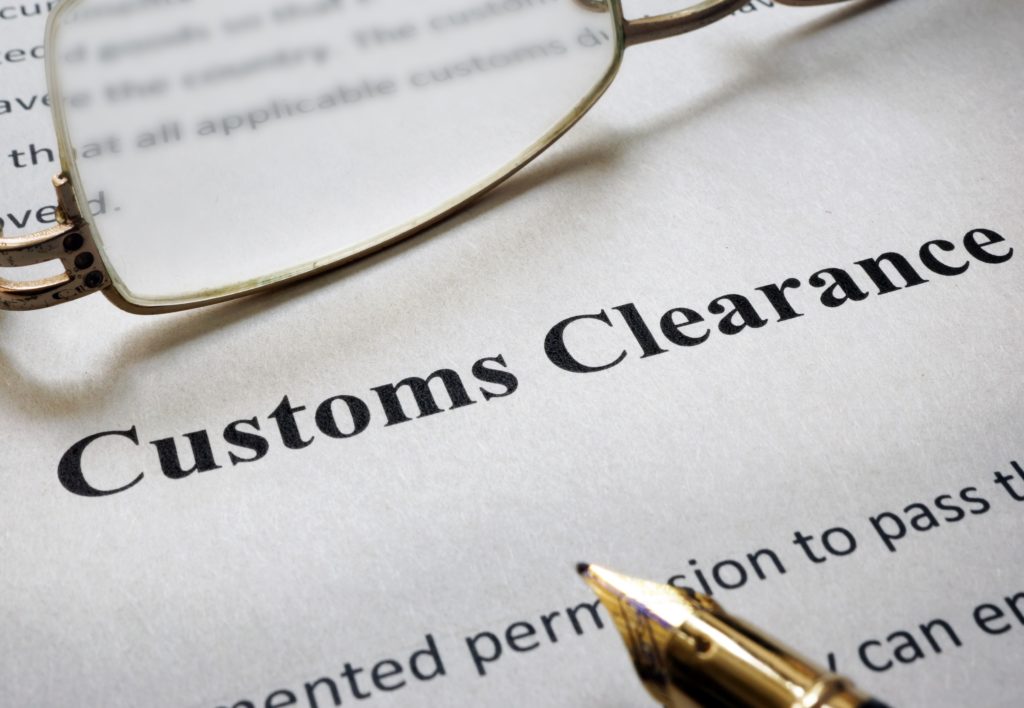Acidified and Low-Acid Canned Foods
Importing Acidified and Low-Acid Canned Foods
Acidified and Low-Acid Canned Foods
An acidified food (AF) is a low-acid food to which acid(s) or acid food(s) are added and which has a finished equilibrium pH of 4.6 or below and a water activity (aw) greater than 0.85.
A low-acid canned food (LACF) is any food (other than alcoholic beverages) with a finished equilibrium pH greater than 4.6 and a water activity greater than 0.85, excluding tomatoes and tomato products having a finished equilibrium pH less than 4.7.
In addition to the requirements mandated by the Bioterrorism Act (BTA), such as food facility registration, U.S. Agent, Prior Notice, food ingredient regulations and food processing and label requirements, canned foods (LACF and ACF) are subject to special control by FDA, which are implemented through Food Canning Establishment (FCE) regulations and Scheduled Process Identification (SID) filings.
If the product meets the above definitions the processing facility must be registered as a low-acid or acidified facility and the manufacturer must file processing information for each LACF or AF product produced that is intended for export to the US.
In-Depth Coverage: Importing Food Products
- What is FDA Food Safety Modernization Act (FSMA)?
- Prior Notice of Imported Foods
- FDA Food Facility Registration
- Risk-Based Preventive Controls for Human Food
- Risk-Based Preventive Control for Animal Food
- Protect Food against Intentional Adulteration
- What is Foreign Supplier Verification Program (FSVP)?
- What is FSMA Produce Safety Rule?
LACF and Acidified Foods Regulations and Requirements
Note that processors of low-acid and acidified food that export such products to the US must register as both an LACF/AF facility and as a food facility under the Bioterrorism act. In other words, if your food is a low acid/acidified product two separate registration requirements apply and such firms must register under both authorities. Furthermore, and if applicable, the FDA must have on file the process or processes filed for the foods and the FDA must also receive prior notice of each food shipment.
A commercial processor, when first engaging in the manufacture, processing, or packing of acidified foods (AF) or low-acid canned foods (LACF) shall register and file with FDA information including the name of the establishment, principal place of business, the location of each establishment in which that processing is carried on, the processing method, and a list of foods so processed in each establishment
A commercial processor engaged in the processing of ACF shall also provide FDA with information, using Form FDA 2541e, on the scheduled processes for each acidified food in each container size. An analogous requirement for process filing, using either Form FDA 2541d, 2541f or Form FDA 2541g, applies to a commercial processor that manufactures, processes, or packs LACF.
FSMA recognizes that FDA has previously established a regulation that addresses biological hazards unique to low-acid foods packaged in hermetically sealed containers (i.e., “low-acid canned foods,” hereinafter referred to as LACF)
In-Depth Coverage: Country of Origin
- Country of Origin of Imported Merchandise
- Customs Ruling: Country of Origin
- Country of Origin: Food Products
- Country of Origin: Chemical and Pharmaceutical Products
- Country of Origin & Country of Manufacture: CBP vs. FDA
- Country of Origin: Substantial Transformation or Country of Assembly Test
- Country of Origin and Free Trade Agreement
- Country of Origin and Section 301
What are FDA requirements for Low Acid Canned Foods (LACF) and Acidified Foods (ACF)?
For the purpose of registration and process filing an LACF product must meet all of these requirements:
-
is a thermally processed product and
-
packed in a hermetically (air tight) sealed container and
-
with an acid content above pH 4.6 and
-
containing enough water (“water activity) greater than 0.85 and
-
that receives a heat treatment to achieve commercial sterility and
-
normally stored and distributed under non-refrigerated conditions.
All processors of low-acid and acidified foods located in the United States and all processors in other countries who export low-acid canned food or acidified food products into the United States must register their processing plants with FDA.
Wholesalers, importers, distributors, brokers, etc. are not required to register and file processes. However, they must ensure that processing firms they represent comply with all registration and process filing requirements.
An acidified food (ACF) is a shelf stable low-acid food to which acid(s) or acid food(s) are added for the purpose of reducing the pH to a finished equilibrium pH of 4.6 or below. It has a water activity greater than 0.85 and is stored and distributed under non-refrigerated conditions.
FDA-Regulated Products and Import Requirements
- What is Food Safety Modernization Act (FSMA)?
- Prior Notice of Imported Foods
- Food Facility Registration
- Risk-Based Preventive Controls for Human Food
- Risk-Based Preventive Control for Animal Food
- Standards for the Growing, Harvesting, Packing, and Holding of Produce for Human Consumption
- What is Foreign Supplier Verification Program (FSVP)?
- Protect Food against Intentional Adulteration
- FDA Regulated Product in Foreign Trade Zone (FTZ)
- Entry Review Process for FDA Regulated Products
- Country of Origin VS Country of Manufacture
- Foods Regulated by FDA or USDA: What is the Difference?
- Label and Labeling Claims for Conventional Food and Dietary Supplements
- What is USDA Country of Origin Labeling (COOL)?
- Import for Export of FDA Regulated Products
- FDA Regulated Products in Personal Baggage or Sending by Mail or Courier
- International Mail Facility (IMF) and FDA Regulation
- Importing Biological Product Regulated by CBER
- Importing Cosmetics and Voluntary Cosmetic Registration Program (VCRP)
- Importing Drugs into the U.S.
- Importing OTC Drugs into the U.S.
- Importing Veterinary Drugs into the U.S.
- Importing Tobacco Products into the U.S.
- Importing Medical Devices into the U.S
- Importing Food Products into he U.S.
- Importing Radiation-Emitting Products into the U.S.
In-Depth Coverage: USDA-Regulated Products
- Importing USDA-Regulated Food Products
- Import Regulation by USDA Agricultural Marketing Service (AMS)
- Food Products – FDA or USDA Regulated
- Country of Origin Labeling
- Importing Animals, Animal Products, and Biologics into the US
- Importing Meat, Poultry, and Egg Products into the US
- Labeling and Marking of Imported Meat, Poultry, and Egg Products
- USDA National Organic Program (NOP)
- Agricultural Safeguards and USDA Licensing
Quick Link To U.S. Customs & Import Requirements
Guidance on customs & logistics solution for traditional and e-commerce importers and exporters
Importer Security Filing (ISF)
An ISF is required when cargo (ocean only) laden on vessel at a foreign port is destined for shipment to the U.S. Under ISF rule, some importing information and details regarding cargo must be transmitted to the CBP at least 24 hours before goods are loaded onto the vessel, or at least 24 hours prior to the departure to the U.S.
Customs Clearance
All goods imported into the U.S. are required to be declared to CBP. Our customs broker will help you stay in compliance with customs laws and regulations and clear your goods quickly and efficiently with our electronic Automated Commercial Environment (ACE) and Automated Broker Interface (ABI) Single Window System.
Freight Forwarding
Looking for a freight forwarding partner? To move your cargo from its current location through customs to its final destination we will partner with you to find the best way for your business. Whatever your transportation, logistics or customs clearance needs, we will do our best to customize a solution for your needs.
Warehousing & Distribution
Our warehouse facility offers great potential for serving as a regional hub with over 145,000 SF storage capacity close to Los Angeles Airport & Los Angeles/Long Beach Sea port. With our extensive experience in freight services, your import/export cargo will be handled quickly and effectively.
Section 321 Entry
Section 321 entry allows importing free of duty and tax for shipments imported by one person on one day having a fair retail value in the country of shipment not more than $800. We provide our resident and non-resident clients with dedicated ACE eManifest solutions for Section 321 entry of all modes of transportation.
Non-resident Importer Program
If you want to sell your products in U.S. marketplaces, but you are a business owner located outside of the U.S. and do not have an entity or presence in the U.S., you need to be established as a Foreign Importer of Record before your products can be imported into the U.S. We can help you.
E-Commerce
The Internet has made it easy to find and purchase items from almost anywhere in the world. Our e-commerce experts will help you find the right solution for your international transportation, customs clearance, and delivery to your final destination. We also provide value-added repackaging, warehousing and distribution services.
Customs Clearance and Import Requirements
- Entry of Imported Merchandise
- What is Section 321 Entry?
- What is Automated Commercial Environment (ACE)
- What is an Automated Broker Interface (ABI)?
- Who is Ultimate Consignee?
- What is Non-Resident Importer Program?
- Country of Origin of Imported Merchandise
- What is the Country of Assembly?
- What if the FDA's Country of Manufacture?
- Marking of Country of Origin on U.S. Imports
- What is Customs Bond?
- Reconciliation Prototype and Bond Rider
- Who Needs a Customs Broker?
- What is Customs Ruling Program?
- Classification of Imported Goods
- How is imported merchandise appraised?
- What are Import Quotas?
- What are Trade Remedy Duties?
- Antidumping Duty (AD) and Countervailing Duty (CVD)
- What is Foreign Trade Zone (FTZ)?
- What is Importer Security Filing (ISF)?
- What is Temporary Importation under Bond (TIB)
- What is In-Bond Process?
















